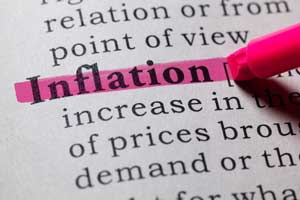Consumer Surveys, Inflation Expectations and the FOMC

Each of the past 12 Federal Open Market Committee (FOMC) statements referred to survey-based measures of inflation expectations. Examining past FOMC minutes, one can glean that these survey-based measures include survey responses by households and not solely those of professional forecasters. The minutes of the June FOMC meeting, for example, cited one of the household-based measures: the one contained in the University of Michigan Surveys of Consumers.1
The attention paid to household inflation expectations surveys seems to represent a gradual change by U.S. monetary policymakers. In 2006, none of the FOMC minutes referred to the inflation responses from the University of Michigan survey.
It stands to reason that the usefulness of these inflation measures for policymaking depends at least somewhat on the quality of the measures. However, there exists evidence that many individuals from the overall U.S. population have distorted views of inflation. Some examples include:
- In a Federal Reserve Bank of Boston study, only 66 percent of individuals surveyed chose the correct definition of inflation from four choices.2
- A National Council of Economic Education survey, released in 2005, revealed that an important share of Americans do not understand inflation and its implications for the U.S. economy.3
- A Federal Reserve Bank of Cleveland study, conducted between 1998 and 2001, asked individuals what the current inflation rate was. On average, the respondents thought inflation was around 6.0 percent. This was more than double the average U.S. inflation rate over this period.4
- Similarly, a 2013 Business Insider survey reported that 39 percent of respondents said inflation was above 5 percent. It was around 1.5 percent at the time of the survey.5
The above evidence suggests that monetary policymakers may want to think hard about how they use individual inflation expectations surveys to inform monetary policy—at least until the nation's economic education program raises the public's understanding of inflation.
Notes and References
1 The minutes read: "The Michigan survey measure of longer-run inflation expectations fell to its lowest level on record in early June."
2 Burke, Mary A.; and Manz, Michael. “Economic Literacy and Inflation Expectations: Evidence from a Laboratory Experiment.” Federal Reserve Bank of Boston Public Policy Discussion Papers, No. 11-8, November 2011.
3 “What American Teens and Adults Know about Economics.” National Council on Economic Education, April 26, 2005.
4 Barro, Josh. “Erick Erickson Sees Inflation, but the Only Thing That’s Inflated Is His Derp.” Business Insider, June 28, 2013.
5 Hickey, Walter. “Americans Think Inflation Is Way Higher Than It Really Is.” Business Insider, Oct. 7, 2013.
Additional Resources
- St. Louis Fed Econ Lowdown
- On the Economy: How Does Government Spending Affect Inflation?
- On the Economy: Inflation Expectations Are Important to Central Bankers, Too
- On the Economy: How Successful Is the Fed at Controlling Interest Rates?
Citation
Bill Dupor, ldquoConsumer Surveys, Inflation Expectations and the FOMC,rdquo St. Louis Fed On the Economy, Aug. 30, 2016.
This blog offers commentary, analysis and data from our economists and experts. Views expressed are not necessarily those of the St. Louis Fed or Federal Reserve System.
Email Us
All other blog-related questions


